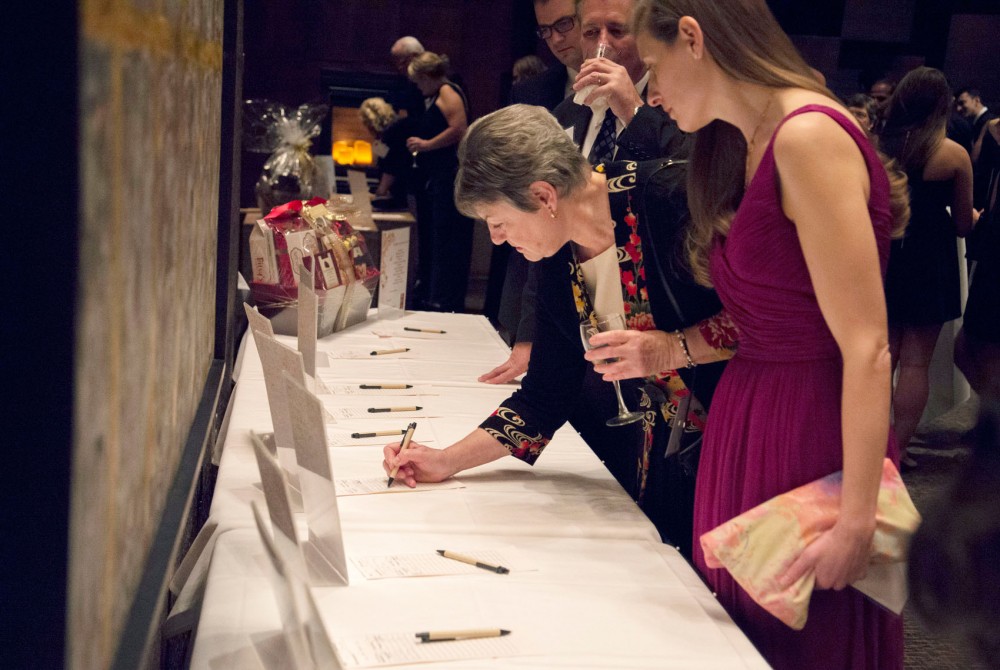Half a century ago, physicians at the University of Minnesota performed the institution’s first successful organ transplant, transferring a kidney between twins.
Now, University employees save lives through organ transplants on a regular basis.
To celebrate the 50-year anniversary and raise money and awareness for its programs, the University hosted a gala Friday and an education conference for patients Saturday.
The gala featured a dinner and silent auction. Ticket prices started at $200.
The celebration events were a joint effort by the University; Amplatz Children’s Hospital; University of Minnesota Physicians, the University of Minnesota Medical Center, Fairview; Fairview Health Services; and the Fairview Foundation.
Dr. Hassan Ibrahim, a professor of medicine and medical director of the University’s kidney transplant program, said the University was one of the first institutions in the world to perform a kidney transplant.
The University continues to be a leader in organ transplants, he said, but some issues plague the field.
Wait time to receive a kidney transplant from a deceased donor has increased drastically. In the mid-1980s, Ibrahim said, the wait time was about six to nine months. Now, it’s five years.
Ibrahim said he thinks the wait has increased because the number of individuals on the transplant waiting list has increased.
“We don’t have enough donors,” he said.
Patients needing a heart transplant experience a similar issue, said Dr. Cindy Martin, assistant professor and heart failure transplant cardiologist.
She said today’s technology can help patients with heart failure live longer, which also increases the demand for heart transplants.
An optimistic predicted wait time for an average-sized person with the most common blood type would be about two years, she said.
Of those with the most advanced form of heart failure, she said, 90 percent die within one year.
Eventually, researchers hope to be able to help those with heart failure before they need a transplant, Martin said.
“We are making progress,” she said. “It’s going to take time.”


